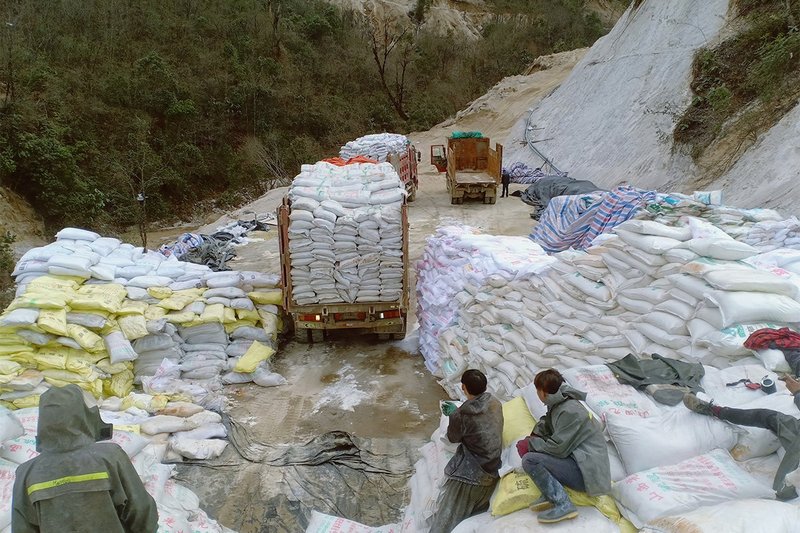CNI News
13 August 2025
As regions where rare earth can be produced are politically a trump card for the Kachin Independence Army, it would not back down easily, military and political analysts told CNI News.
Almost all the places where rare earth that can be extracted within Kachin State have been controlled by the KIA.
Since rare earth is several billion dollars worth, the Myanmar Tatmadaw could launch military operations to regain control of those places, they considered.
So, battles could be severely take place between the Myanmar Tatmadaw and the KIA in the regions where rare earth can be extracted, Dr. Hla Kyaw Zaw, a Myanmar-China affairs analyst, told CNI News.
"Panwa and Kan Pite Tee where lots of rare earth are located are very close to the Chinese border. So, it's not easy for the Myanmar Tatmadaw to use heavy weapons or drop bombs. China warned that it won't tolerate heavy weapons or bombs being dropped on its side. These things are a trump card of the KIA, so it won't retreat easily, I think. The Myanmar Tatmadaw will fight tooth and nail to regain control of these regions. Fierce battles could break out there." she said.
Rare earth elements are essential for the production of smartphones, electric cars, weapons systems, fighter jets, and high-tech products around the world.

While some rare earth elements were being carried
The KIA has seized rare earth mineral-producing areas in Kachin State, including the Panwa region, which has nearly 300 rare earth blocks.
The top three countries producing rare earth elements in the world are China, the United States, and Myanmar. In 2024, China accounted for nearly 70 percent of the world's production, the United States for more than 11 percent, and Myanmar for nearly 8 percent, according to a report by Statista, a New York-based organization in the United States, in February 2025.
Since rare earth elements belong to the state, there should be negotiations over their distribution, the Tai Leng (Shanni) Nationalities Development Party (TNDP) Chairman Sai Htay Aung told CNI News.
" Rare earth elements are produced around Momauk. The Myanmar Tatmadaw can try to recapture this region because it is owned by the state. The mineral belong to the whole country. Negotiations are needed for resource sharing." he said.
Myanmar's rare earth exports to China reached 4,200 tons in September 2024. However, during the three months - October, November and December that year when battles were breaking out between the Myanmar Tatmadaw and the KIA in Chipwe and Panwa, more than 3,300 tons of rare earth element only could be exported, reported local media.

While extracting rare earth elements and seeing an armed group
Additionally, Reuters reported a few days ago that the administration of US President Donald Trump was likely to hold talks with the Kachin Independence Army (KIA) over purchasing rare earth elements from Myanmar. The United States was seeking to get Myanmar's rare earth minerals which were entering China, four sources told Reuters.
Therefore, domestic and foreign military and political analysts are questioning whether a competition between China and the United States over rare earth elements could arise.
The incident was a political balancing act by the KIA to prevent further Chinese pressure on it, Colonel Khun Okkar, chairman of the Pa-O National Liberation Organization (PNLO-NCA/S), which signed the NCA, told CNI News.
" In my opinion, among the armed groups in Myanmar, the KIA is close to the US. The US also approaches. Among the EAOs, the KIA only approaches the US. Rather than whether the US purchases the rare earth elements from the KIA or not, the KIA tries to make contact with the US by reason of the rare earth elements. China put pressure on the KIA as well. The KIA seems to use a system of checks and balances. It means that it makes contact with the US. It's a political balancing, I think." he said.
One of the proposals put forward to the Trump administration is to encourage the Myanmar Tatmadaw to hold peace talks with the KIA, while another is for the United States to negotiate directly with the KIA.
Global Witness reported in May 2024 that illegal exports of rare earth elements generated $1.4 billion in revenue over the three years following the political change.
Almost all the rare earth elements illegally exported reportedly was from Panwa and the Kachin Special Region (1).




